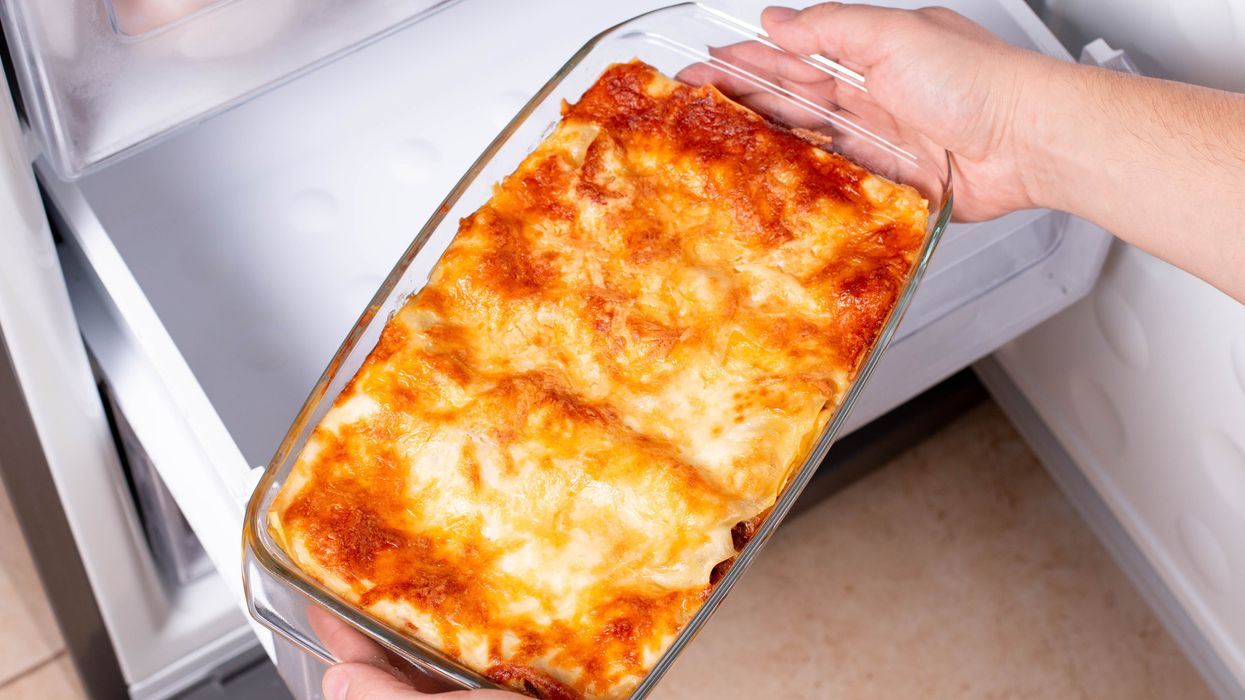Vegetable lasagnes sold in Iceland supermarkets are being urgently recalled over concerns they may contain hard pieces of plastic, which could pose a risk to consumers. The recall applies to 400g packs of the lasagne with best-before dates of 23 July 2026 and 30 July 2026. Shoppers who purchased these specific products are being advised not to eat them and to return them to the store for a full refund.
Food Standards Agency issues warning
The Food Standards Agency (FSA) has issued a precautionary recall notice, alerting customers to the potential hazard posed by the contaminated lasagnes. The agency explained that the product might contain hard plastic, making it unsafe for consumption. The FSA emphasised that only the products with the specified best-before dates are affected by the recall.
In the notice, the FSA stated, “We are taking the precautionary measure of recalling the date codes of the above product because it may contain hard pieces of plastic, making it unsafe to eat.” The notice clarified that only the best-before-date codes listed are involved in the recall.
The FSA has urged customers to check if they have bought the affected lasagne and return it to the store from which it was purchased. Iceland is offering a full refund, and no receipt is required. To assist customers in identifying the product, the FSA suggested taking a photo of the recall notice or writing down the relevant product details before returning it.
Plastic contamination risks
Plastic is frequently used in the packaging of ready meals, but when hard plastic finds its way into food, especially when heated, it can pose significant health risks. Consuming fragments of hard plastic can lead to physical injuries, such as choking or internal damage. This recall is a preventive measure to ensure that no one is harmed by consuming the affected products.
Iceland’s response to the recall
Iceland, a leading high-street supermarket chain in the UK, has taken swift action in response to the recall. The company has made it clear that customer safety is its top priority, urging anyone who has purchased the affected vegetable lasagne to return it to their nearest Iceland store. A full refund will be provided without requiring a receipt, simplifying the process for customers.
The recall highlights the ongoing commitment of retailers and food safety authorities like the FSA to uphold stringent safety standards. By responding quickly and efficiently to potential food hazards, Iceland demonstrates its dedication to ensuring the well-being of its customers.
Simple return process for customers
Customers who have purchased the affected lasagnes are encouraged to return them directly to the Iceland store where they were bought. The return process has been made straightforward, with no receipt needed to receive a full refund. This ensures that the recall is as accessible as possible for all customers.
In food recalls of this nature, consumers are usually advised not to dispose of the product at home but to return it to the retailer. This not only ensures proper handling of the affected items but also allows the retailer to track the recall more effectively.
Mention of cat food recall
In a related case, Savage Cat, a pet food brand in the US, recently issued a recall for its raw chicken cat food due to potential bird flu contamination. While this case involves a different type of product, it serves as a reminder of the ongoing vigilance required by food safety authorities worldwide to protect both consumers and pets.
The importance of food safety
Food recalls like this one are a vital aspect of maintaining public health and safety. They ensure that products deemed unsafe are quickly removed from store shelves and from consumers’ homes. The cooperation of consumers in identifying and returning potentially dangerous items is crucial in helping retailers and regulators mitigate any risks.
The recall of Iceland’s vegetable lasagne serves as a reminder to stay informed about food safety alerts and to act promptly if a product you have purchased is found to be unsafe. Food safety regulations and recall measures exist to protect the public, and swift action by retailers and consumers alike can help prevent harm.
For now, anyone with a potentially affected vegetable lasagne is urged to check their freezer and return the product to Iceland for a full refund. This proactive step ensures that consumer safety remains a top priority in the food industry.





